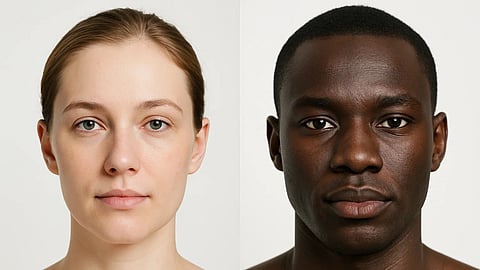Skin colour, largely determined by the type and amount of melanin, plays a role in several physiological functions. Recent research sheds new light on how darker skin may provide advantages beyond appearance, as well as what downsides both lighter and darker skin types carry.
A study from the University of California, San Francisco (UCSF), challenged traditional views about human skin pigmentation. Researchers including Peter Elias, MD, and Mary L. Williams, MD, proposed that darkly pigmented skin evolved because it offers a stronger barrier against environmental stressors. Key findings include:
Barrier Function & Water Loss: Dark skin demonstrates better moisture retention.
Antimicrobial Defense: Dark skin tends to have a lower surface pH (i.e. more acidic), which inhibits growth of harmful microbes and supports antimicrobial peptides.
Mechanical Strength: Research showed skin with heavier pigmentation is more robust against mechanical damage—irritation, abrasions, etc.


